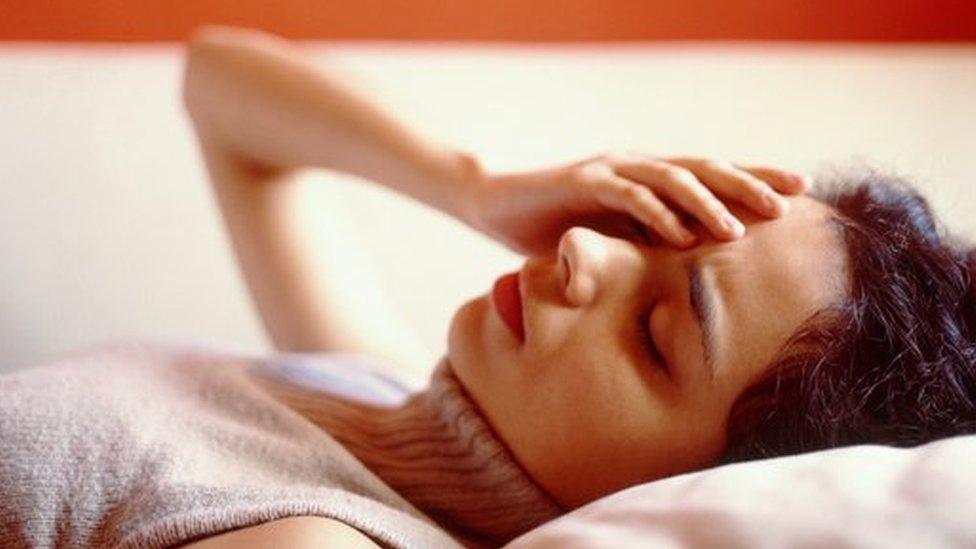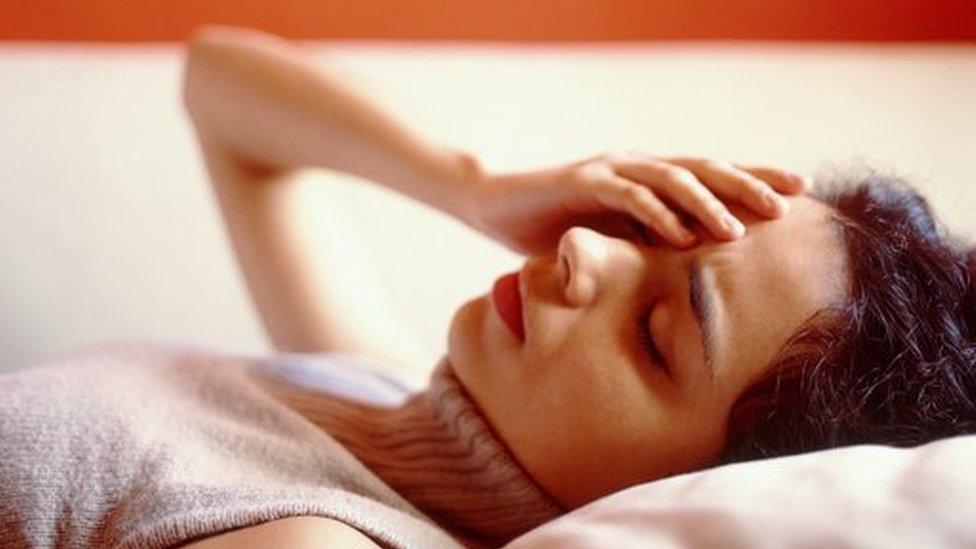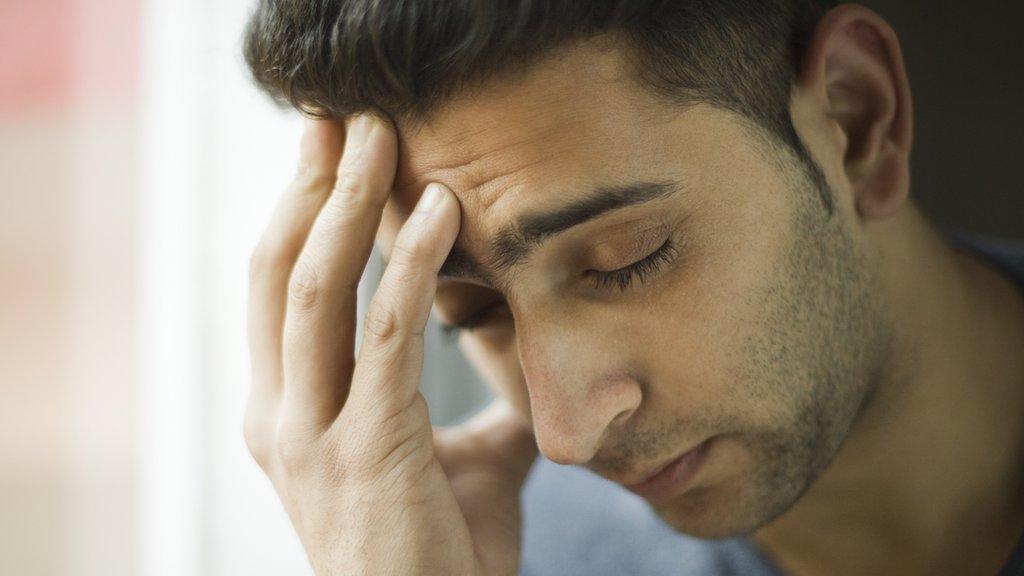Prize-winning migraine experts hope for a cure
- Published

Four migraine experts, who have been awarded a top brain prize, say they hope the condition can be cured.
Their research, over 40 years, has led to new treatments for millions of people affected by the problem.
Migraine affects three times as many women as men because of its link to hormones.
Prof Peter Goadsby, from King's College London, said his prize was "for all the people who have suffered for so long with headache disorders".
The Brain Prize, worth over £1m, was also shared by Prof Lars Edvinsson, from Lund University in Sweden, Prof Michael Moskowitz from Harvard Medical School and Prof Jes Olesen, from Rigshospitalet, Denmark.
The four neuroscientists, who have dedicated their careers to finding out more about migraine, discovered that a biological mechanism triggers an attack, leading to blood vessels surrounding the brain opening up and causing pain.
This revelation led to a whole new group of drugs being developed to treat migraine.
Migraine facts
it's one of the most common neurological conditions affecting humans
most attacks last for 24 hours
symptoms include severe head pain, nausea, vomiting, dizziness and sensitivity to sound, light, and touch
three million people are having one right now
one in three women has migraines
women are three times more likely than men to be affected
women also have more frequent and severe attacks
The drugs were approved in the US in 2018 and some have been approved in the UK, including remanezumab and galcanezumab. Another called erenumab is coming soon.
Migraine is a "reversible problem" which is unusual in neurology, says Prof Goadsby, adding that he hopes it can be cured one day.
"Not everyone responds to the medicine - but if you can stop it in some, we are on the road to stopping it in many," he said.
Previous migraine treatments had significant side-effects and could only help to relieve symptoms, not prevent migraine.
In contrast, the new drugs have been shown to improve the quality of life of many sufferers, preventing attacks while also treating their debilitating effects.
Prof Goadsby said receiving the prize was "an enormous privilege" and an overdue recognition of the "Cinderella problem of migraine".
The Brain Prize will be awarded at a ceremony in Copenhagen on 25 October, presided over by the Crown Prince of Denmark.
Related topics
- Published17 April 2018

- Published30 November 2017

- Published27 September 2010